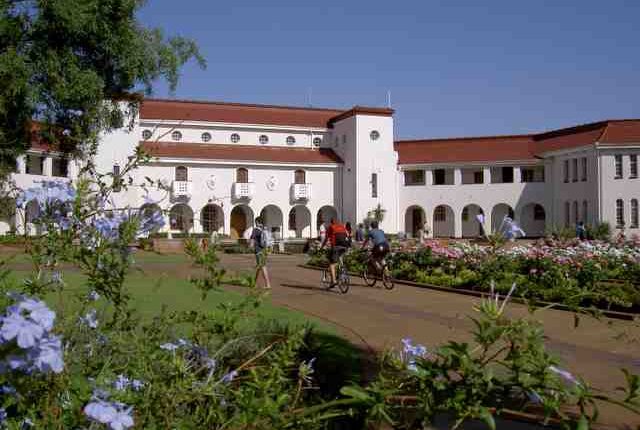ANLP of North-West University leads to nutrition collaboration in Lesotho
The African Nutrition Leadership Programme (ANLP) of the North-West University (NWU) is continuing its aim to build tailored leadership capacity on the African continent.
Representatives of the ANLP engaged with the Lesotho Nutrition-Sensitive Platform (LSNP) in Maseru on 15 and 16 June. This follows a leadership capacity building visit to Nigeria earlier in the year (to read more, visit: Impact of nutrition project continues through leadership development | news.nwu.ac.za).
Dr Christine Taljaard-Krugell and Prof Johann Jerling were invited to attend the quarterly meeting of the LSNP to assess whether tailored leadership capacity building is needed.
Prof Jerling says they established further NWU collaboration with the LSNP. “We will concentrate on leading change in nutrition in Lesotho through the LSNP, with the focus falling on specific teams who implement nutrition-sensitive interventions guided by the Lesotho Food and Nutrition Policy.”
More about the Lesotho Nutrition-Sensitive Platform
According to Dr Taljaard-Krugell, the LSNP, established by the Lesotho Ministry of Agriculture and Food Security through the Nutrition Directorate, serves as a representation of key stakeholders. “This is of particular interest since it also demonstrates the importance of political will to solve nutrition problems – in South Africa we have some way to go still.”
“The objective of the platform is to offer technical advice, oversight and support to the ministry regarding strategies, plans, and programme implementation relating to nutrition. Members of the LSNP include representatives from various ministries, the National University of Lesotho and non-government organisations such as the World Food Programme, Catholic Relief Services, United Nations Nutrition, and the Food and Agriculture Organisation of the United Nations.”
Dr Taljaard-Krugell says Lesotho faces the double burden of malnutrition, with 34,6% of children under five years affected, and 30,1% of adult women and 5,9% of adult men living with obesity. “Nutrition-sensitive programmes are vital in addressing these challenges by acknowledging the multifaceted nature of malnutrition and integrating nutrition interventions across sectors such as agriculture, health, education and social protection. This integration aims to enhance food security, promote dietary diversity and improve overall health outcomes.”
Prof Jerling added: “Building long-term relationships across the continent is an investment and a critical enabler for implementing expertise. One member of the platform is a past PhD student of the Centre of Excellence for Nutrition (CEN) at the NWU and a participant in the first ANLP, hosted in 2002. Another member attended a different leadership development course that we hosted in 2018, and yet another one attended the ANLP in 2022. These relationships open many doors and facilitate progress, since we have already established trust with key members of the LSNP.”

